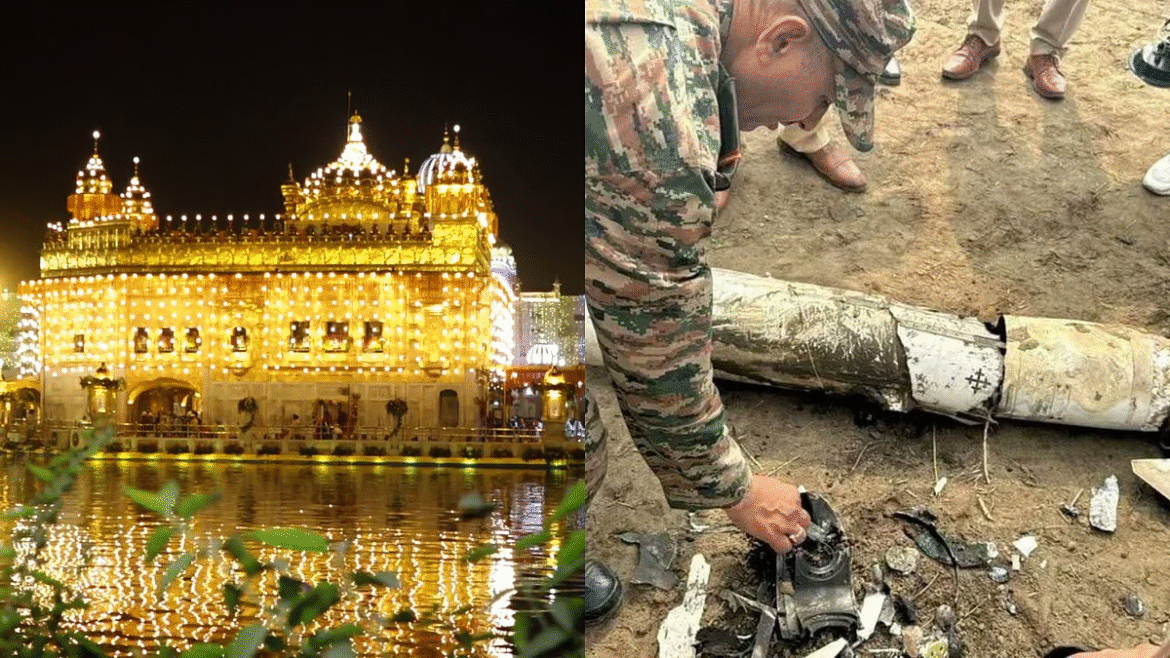AI Generated Summary
- That two rockets were confirmed to be on a trajectory toward the Golden Temple, the holiest shrine in Sikhism, is not just an alarming footnote in the broader escalation of hostilities between India and Pakistan.
- His loyalties have long been questioned by Sikhs in India, but now, after this week’s events, the question is no longer whether Pannun is a misguided voice—it is whether he is a pawn.
- It was a moral provocation, one aimed squarely at the soul of a faith and the spirit of a people.
On the night of May 7, 2025, the Golden Temple—a sacred beacon of peace, devotion, and Sikh identity—was nearly struck by Pakistani rockets. While Indian air defense systems heroically intercepted the missiles before catastrophe could unfold, the intent behind the assault was unmistakable. This was not just an act of military aggression; it was a moral provocation, one aimed squarely at the soul of a faith and the spirit of a people.
That two rockets were confirmed to be on a trajectory toward the Golden Temple, the holiest shrine in Sikhism, is not just an alarming footnote in the broader escalation of hostilities between India and Pakistan. It is a dangerous line crossed. It is an attack on religious heritage, on civilians, and on the very idea that places of worship should remain sanctuaries even amidst conflict.
India’s prompt and effective defense systems prevented a potential tragedy of unimaginable scale. But the trauma remains. This strike, had it succeeded, would have echoed through history as a moment of spiritual and cultural desecration, an unforgivable wound inflicted on a community that has already borne more than its share of trials.
But this wasn’t the only act of hostility in recent days. Just hours earlier, Pakistani shelling in Poonch claimed 12 civilian lives, including respected Sikh preachers and innocent homemakers. The local gurdwara, Shri Guru Singh Sabha, was partially destroyed. Survivors compared the experience to the horrors of the Kargil War. For many Sikhs in the region, this is not just a military escalation—it is a humanitarian crisis.
And yet, from the self-styled defenders of Sikh rights abroad, there is silence.
Gurpatwant Singh Pannun, the loudest voice in the global pro-Khalistan movement, has had much to say when it suits his anti-India agenda. But when Pakistani rockets nearly reduced the Golden Temple to rubble—when Sikh blood was spilled by Pakistan’s shelling—he said nothing. Not a word of condemnation. Not a murmur of solidarity with the grieving Sikh families in Poonch. His silence is deafening—and revealing.
This is not an oversight. This is a choice.
Pannun’s close ties with Pakistani operatives and the ISI are no secret. Intelligence dossiers and media investigations have documented how his organization, Sikhs for Justice, was co-founded with direct Pakistani support. His loyalties have long been questioned by Sikhs in India, but now, after this week’s events, the question is no longer whether Pannun is a misguided voice—it is whether he is a pawn.
The contrast could not be starker. While Pannun and his ilk remain conveniently mute, Indian Sikh leaders have responded with clarity and courage. The acting Jathedar of the Akal Takht, the Shiromani Akali Dal, and countless community voices have condemned the attacks as inhuman and targeted. They have reaffirmed Sikh values—service, sacrifice, and solidarity with the nation. They have spoken not from political ambition, but from a place of faith and responsibility.
To attack the Golden Temple is to strike at the very idea of Sikh endurance. But as history has shown, this community has never buckled under siege. From the Mughal persecutions to the trials of 1984, Sikhs have stood tall, their spirit unbroken, their swords raised not in vengeance, but in defense of justice.
Let this moment serve as a wake-up call—not only to those who would turn a blind eye to terror cloaked in geopolitics but also to every Indian who values the pluralistic fabric of our nation. The rockets missed the Golden Temple, but they hit a deeper target: the hypocrisy of those who claim to speak for Sikhs while ignoring their suffering.
The Sikh community has answered in unison. They do not stand with propaganda. They do not stand with puppets. They stand with their motherland, India. They stand with peace. And they stand, as they always have, with honour.




